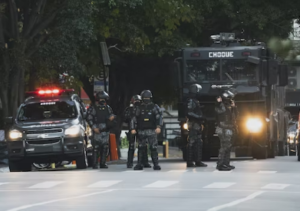As law enforcement leaders, we prioritize firearms training and qualification. We focus on the mechanics of drawing a weapon, stance, sight focus, breathing, etc. We teach our officers firearms safety rules, relevant case law, and a general overview of when force can be used. All of which is vital to the performance of a police officer to safely carry out their duties.
Yet… Why is it that so many agencies fail to train officers in critical thinking, which plays the predominant role in the decision to use that firearm? Too often, law enforcement leaders have come to rely on “tactical” training, laws, and general police experience to guide officer decision-making. Critical thinking, like other aspects of policing, is a perishable skill and should treated as if lives are counting on it.
Here are some proactive and actionable steps that can be taken to improve officer critical thinking and decision-making:
- Identify Assumptions: Help individuals recognize assumptions underlying their beliefs, decisions, and actions. Encourage them to question these assumptions to gain a deeper understanding.
- Ask Questions: Teach the art of asking probing questions. Encourage open-ended questions that challenge assumptions and explore different perspectives.
- Evaluate Evidence: Teach individuals to assess the credibility and relevance of evidence. This involves examining sources, considering biases, and identifying logical fallacies.
- Analyze Arguments: Break down arguments into their component parts: premises, conclusions, and reasoning. Teach individuals to evaluate the strength and validity of arguments.
- Consider Multiple Perspectives: Encourage people to consider diverse viewpoints, even if they disagree with them. This fosters empathy, open-mindedness, and a broader understanding of complex issues.
- Promote Reflection: Encourage reflection on past decisions and experiences. What worked well? What could have been done differently? Reflection enhances self-awareness and improves decision-making.
- Provide Feedback: Offer constructive feedback on individuals’ critical thinking skills. Point out strengths and areas for improvement, and encourage ongoing development.
- Use Real-World Examples: Illustrate concepts with real-world examples relevant to individuals’ lives. This helps make abstract ideas more concrete and relatable.
- Practice Problem-Solving: Provide opportunities for practical problem-solving exercises. Encourage individuals to brainstorm solutions, weigh pros and cons, and anticipate potential consequences.
In summary, critical thinking training for police officers is essential for enhancing their decision-making abilities, problem-solving skills, adaptability, and overall effectiveness. It plays a crucial role in promoting ethical conduct, positive community relations, and continuous improvement within law enforcement agencies.
Consider the following:
On a scale of 1-10, how often are we intentional about training critical thinking?
Which of these tactics does my agency currently employ and where can we improve?
What are the potential consequences of failing to train our officers to think critically?
Thank you for the work you do every day and your dedication to making our communities safer.


